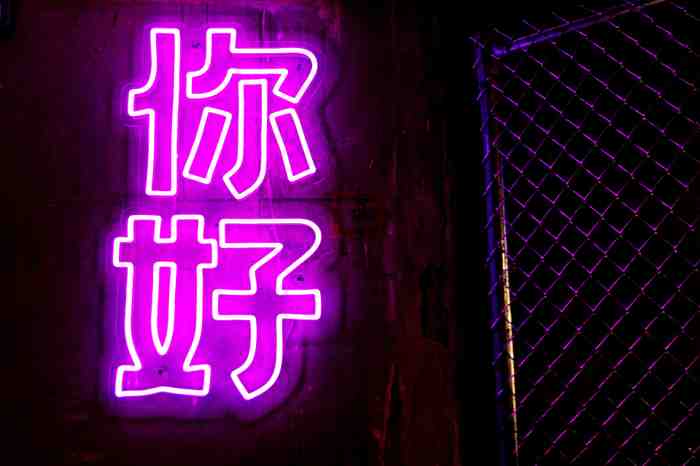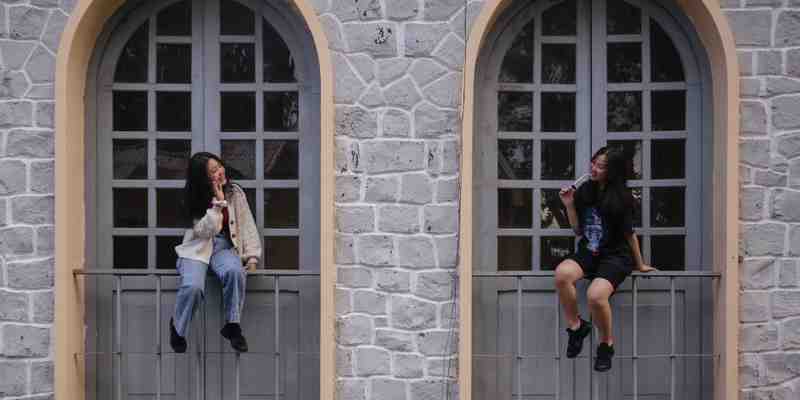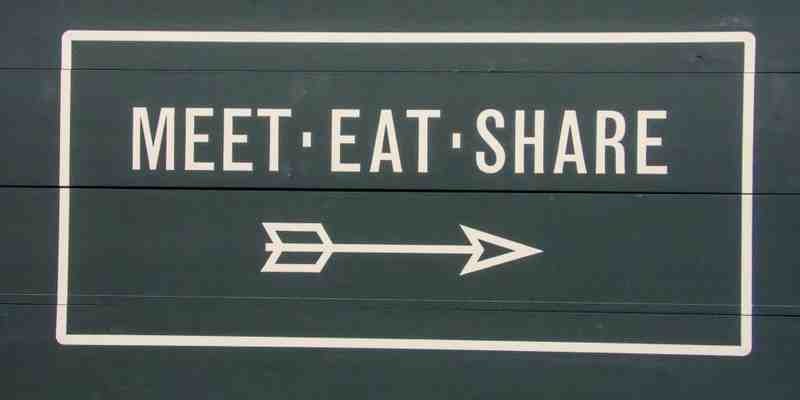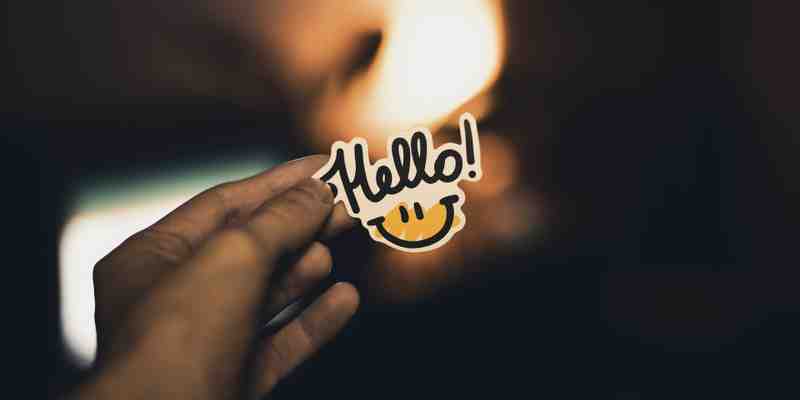How to Say "How Are You" in Chinese
When we say hi to people, especially to those we know, we often ask "How are you?"
It is a very common greeting we use in English in our daily life, and it is important to know how to properly express the phrase for Mandarin Chinese learners if you want to communicate with Chinese speakers and improve your speaking skills.
In this article, we will go over a few different common Chinese phrases to ask "How are you?".
你好吗 (nǐ hǎo ma)

This may be one of the most common Chinese greetings people use to say hello to someone.
The literal meaning of 你好吗 is "Are you good?"
吗 here is a question particle, which is used at the end of a sentence, making it a yes and no question. We have published an article with more details on How to Ask Questions in Chinese, feel free to check it out!
An example conversation using 你好吗 is given below:
"小明! 好久不见,你好吗?" - "Xiaoming! Long time no see, how are you?"
"我很好! 你呢?" - "I'm doing good/great! What about you?"
Sometimes, people would add more words to this greeting phrase, such as "How are you lately?" or "How have you been recently?"
In Chinese, these would become:
你最近/近来好吗? - How are you recently/lately?
你这段时间过得好吗? - "How have you been recently/lately?" or "How are you doing recently/lately?"
All of 最近 (zuì jìn) / 近来 (jìn lái) / 这段时间 (zhè duàn shí jiān) have the meaning of "recently/lately/this last period of time", which is commonly used when we greet someone we know. And they can be used in most of the phrases we will go over today.
Note that these words are generally used following the pronoun you (你), and before the Chinese translation of "how" - 好吗, or 可好/怎么样/如何 that are mentioned below. And in fact, the pronoun can be omitted too since it's obvious whom you're talking to.
Pay attention that 好吗 can also be added to the end of a suggestion or request to express "ok?"
For example:
我们等会儿去吃饭吧,好吗? - Let's go get dinner later, shall me/ok?
请不要打扰我,好吗? - Please don't bother me, ok?
可好 (kě hǎo)

可好 is also a phrase to express "how", and its meaning is similar to "好吗" in Chinese.
Typically, to use 可好 to ask someone how they are doing, we would add the phrase for "recently/lately" as well.
For example:
(你)最近可好?
(你)近来可好?
- How are you (doing) recently/lately?
The pronoun here can be omitted.
Overall, 可好 can be viewed as a replacement for 好吗. The main difference is that 可好 is more polite and more formal, or sometimes used more poetically.
Just like 好吗, 可好 can also be used at the end of a suggestion or request to express "ok?"
Some examples are:
留下来陪我,可好? - "Stay with me, ok?" or "Stay with me, please."
我带你去,可好? - Let me take you there, ok/does that work?
Compared to 好吗 above, the use of 可好 generally will make you sound more polite and less casual.
怎么样 (zěn me yàng) / 如何 (rú hé)

Both 怎么样 and 如何 mean "how", and we can use them to ask "How are you". There is also a thorough introduction to their usages of how to ask questions.
Some examples of using them for "how are you":
你最近怎么样?
近来如何?
- "How are you (doing) recently/lately?" or "How's it going lately?"
As you can see, they are used the same way as 好吗 and 可好, and they follow the same grammar rules as well. The meanings of the phrases are also the same.
Maybe the only difference between 好吗/可好 and 怎么样/如何 is that their literal translations differ, the former is "good?" and the latter is "how".
Here, 怎么样 is used slightly more commonly than 如何, as 如何 is more formal.
忙吗 (máng ma)

We've gone over all the common ways to express "how are you" in a literal way in Chinese. But there are also other phrases people use to say hi and ask how they are doing.
One of the commonly used phrases is asking if they are busy by using "忙吗?"
"(你)最近忙吗?" or "(你)最近忙不忙?" - "Are you busy lately?"
"还行。" - "I'm doing ok." or "Not too bad."
Again, the pronoun 你 can be skipped.
Note that 忙吗 can be expressed as 忙不忙, which is another form used to ask a yes or no question as well. See details on how to ask questions.
忙吗 or 忙不忙 is often used between people who are familiar with each other, usually between friends or family that haven't seen each other for a while. This is a good phrase to use if you want to learn what they've been up to recently.
吃了吗 (chī le ma)

The literal meaning of "吃了吗?" is "Did you eat?", but people often use it to say hi to someone. This is a pretty casual way to greet people. It's sort of like the phrase "What's up?" in English.
For example, when you bump into someone you know (typically people you know well) on the side of the road, and it's not far around the time for a meal, and they appear in a relaxed mood, then it's definitely a good phrase to use.
A lot of the time, if you ask someone (or a group) this phrase, they will likely stop and chat with you for a bit.
"吃了吗?" - "Did you eat?" or "What's up?"
"刚吃完,出来散散步。你呢?" - "Just ate, out taking a walk. What about you?"
"正准备回家吃呢,最近如何啊?" - "About to go home and eat. How are you lately?"
……
No matter what the answer is, it's a good start for a casual conversation.
Other Simple Ways to Say Hi

Sometimes when you are busy or simply have no intention to start a conversation but want to node or greet someone you know who passes by, you might say something like "Hey, what's up?" or even as simple as "Hi", and end the conversation. There are similar phrases to use in Chinese as well.
Some examples of short interactions can be:
"嗨!" - "Hi!"
"嘿!" - "Hey!"
(With nodding as walking past each other.)
"嘿,去吃饭啊?" - "Hey, going to eat?"
"啊,对!" - "Ah, yeah!"
"回家吗?" - "Going home?"
"嗯,你呢?" - "Yes, you?"
"我也是,回头见!" - "Me too, see you!"
"诶,好!" - "Ah, of course!"
You could simply node to the person with "嘿" or "嗨", which is literally "Hey" and "Hi" in English. But sometimes people might also ask an obvious question about what they are up to, and the conversation often ends quickly, which is a good way to say hi when you don't have the time or don't want to talk for long.
There are many different ways to express "How are you", or simply say hi to people in Chinese. Use the proper phrase or word for different situations. It's an important step when you want to start a conversation or just some handy phrases to use when greeting someone.